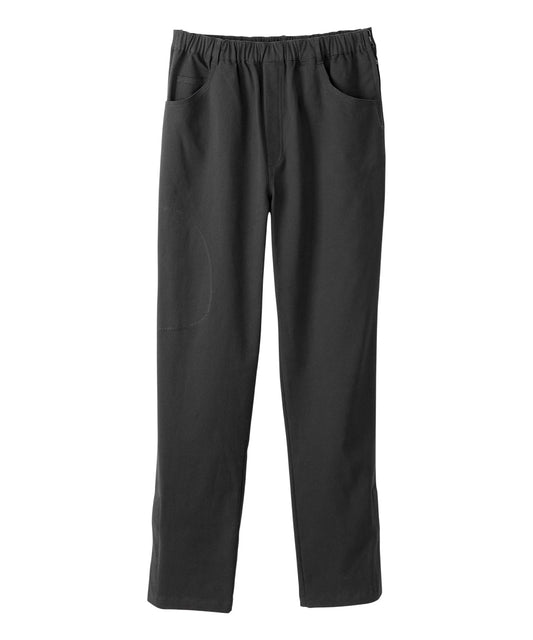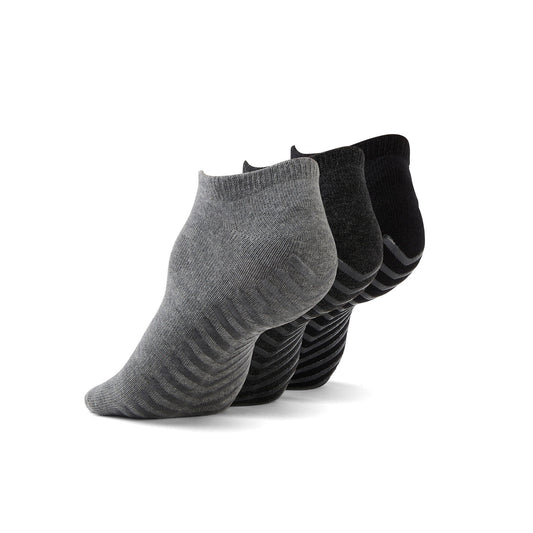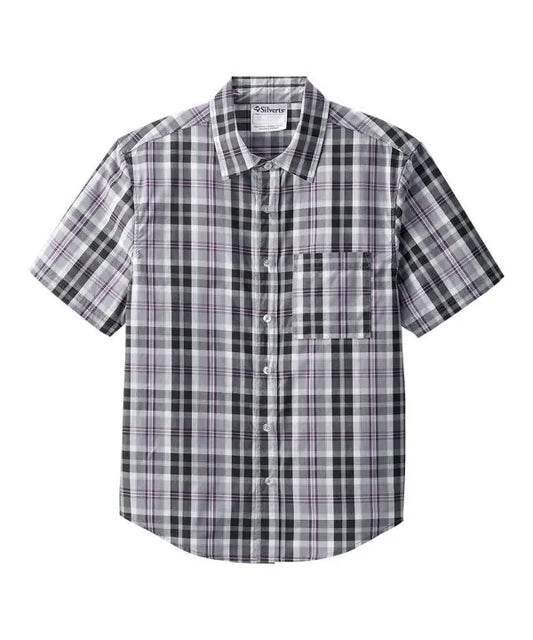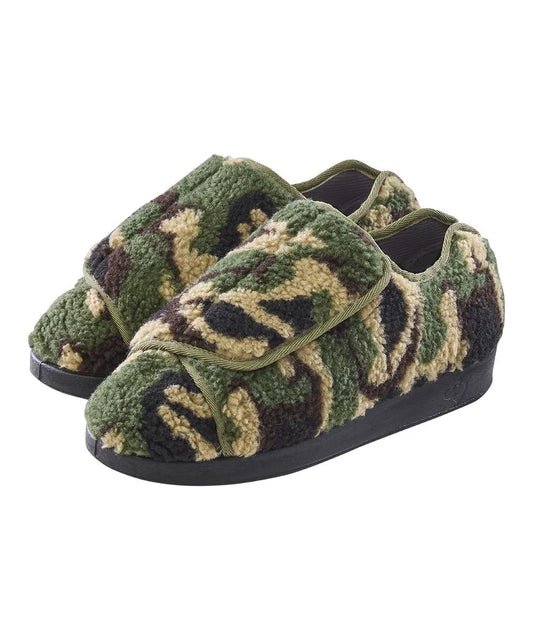Written by: Shreeya Shah
Sleep is vital to our overall health, both physical and mental, yet for many of us with disabilities, chronic pain, or post-operative restrictions, it always feels like a hard-fought battle. Traditional pyjamas, no matter how cozy they appear, are rarely designed with accessibility in mind. They can be restrictive, uncomfortable, and even unsafe for people who experience mobility challenges, sensory sensitivities, or require assistive care at night.
And this is where adaptive sleepwear can change everything.
"June Adaptive, a pioneer in the inclusive fashion world, has redefined what it means to feel comfortable in your own skin. Their thoughtfully designed adaptive pyjama line combines function, dignity, and softness, ensuring that sleepwear isn’t just stylish, but genuinely practical. Whether you're dressing independently or with assistance, managing a catheter, or simply seeking pyjamas that don’t irritate the skin, adaptive sleepwear creates a better, more compassionate bedtime experience.
Let’s explore some examples of how adaptive designs, smart fabric selections, and thoughtful features can ultimately support better rest, more independence, and increased peace of mind.
Why Traditional Pyjamas May Not Work For Disabilities
For many, the evening transition to bed is a calming routine. However, for adults living with limited mobility, arthritis, recovering from surgery or with cognitive disabilities such as dementia, it can feel like a long, tiring process. Most pyjamas are designed for people who can easily lift their arms, bend, and are able to manipulate buttons - an assumption that does not reflect the lived experience of millions of people.
For instance, something as simple as a button-down top or an add-on waistband can be a true barrier. As well, even putting arms in sleeves or neck-holes may require much more flexibility than a person may have. If you consider most pyjamas are made of common fabric, there are also those with scratchy seams and irritating tags that make sleeping uncomfortable for users of all ages with sensory sensitivities.
June Adaptive is a company that emphasizes empathy in its design. Their Men's Collared Nightgown with Back Overlap eliminates many of these elements through a dignified open-back design that gives the user little fatigue in dressing, even lying down. This type of garment is especially useful for those who are reliant on caregivers or use a wheelchair. The back panels provide modesty, while allowing access to perform care activities and comfort with respect to positioning someone, or checking a medical device, without the discomfort of physical disturbance often required of conventional nightwear.
Adaptive pyjamas are designed with the knowledge that comfort is more than what's on the surface; it's about allowing independence, alleviating stress in a time of day that is very vulnerable.
Best Fabrics For Temperature-Sensitive Sleepers
High-quality sleepwear starts with the right fabric. For people with neurological conditions, autonomic disorders, spinal injuries, or those going through menopause, body temperature can fluctuate dramatically through the night. Many people experience night sweats or overheating, as well as chills from low circulation or environmental sensitivity.
That's why we select our materials at June Adaptive for their gentle temperature regulation, moisture wicking, and cozy soft feel without negative overheating.
Take a look at the Women's No Peek Open Back Flannel Nightgown. This nightgown has a soft brushed flannel and is warm but not suffocating, as it is breathable for all-night comfort. At no point should heat be trapped in the body, and the No Peek design is best suited for those who want the utility of an open-back nightgown without loss of modesty. The generous cut and shoulder snaps allow it to slide on and off easily when dressing or undressing, even for someone with limited use of their shoulder and arm.

When choosing sleepwear for hotter climates or seasons, it is just as important to pick lighter fabrics. Breathable cotton blends will help manage night sweats and regulate body heat through the night, while still being soft against sensitive skin. Having the appropriate sleepwear for the season, or enough layering options that won't restrict you, is integral to comfortable rest and skin health.
Magnetic vs. Velcro Closures For Nighttime Changes
When it comes to closures, it can seem like an afterthought, until you are fumbling with buttons in the dark or not able to redress your loved one for that midnight run to the bathroom. For those that require frequent position changes, use incontinence products, or have decreased dexterity, closures have significance.
June Adaptive prioritizes quiet/intuitive closures that promote independence, without losing ease of use. Choosing between magnetic closures and Velcro can depend on the circumstances and personal preference.
Magnetic closures can be handy for shirts or daytime apparel, but for nighttime sleepwear, gentle snaps or wide closures can have an advantage. The Women's Easy-On Nightgown exemplifies the ease of wide armholes with soft fabric for a no-nonsense, no-wrestling gown that fits all body forms and a range of medical needs. It has a nice, relaxed fit and is perfect for someone recovering after surgery or someone who faces challenges lifting their arms overhead.

This gown's loose fit means that changes during the night, whether for temperature regulation, personal care issues, or medical access, are fast and worry-free. It also minimizes friction for people who sleep on their sides or are immobile, and protects against chafing and pressure sores from prolonged time in bed against sensitive skin.
Adaptive Sleepwear For Catheter & IV Users
Most sleepwear companies do not consider the actual presence of medical devices like catheters, IVs, PICC lines, and feeding tubes in the design of their clothing. These devices/treatments are an everyday part of many people's lives, and pyjamas should help accommodate them, not create another layer of difficulty.
June Adaptive sleepwear is uniquely designed with special access features that work around medical systems. If you have ever experienced putting on pyjamas with a Foley catheter, you understand the difficulty of pulling a waistband over the tubing. Instead of worrying about tugging at your hospital gown so that tubing remains hidden, June Adaptive sleepwear is designed to limit disruption of the tubing coming from your body.
Clothes designed for this purpose are not only helpful for comfort but also for safety. It is possible to snag tubing or pinch skin near a port site, which can create pain and/or lead to infection or skin breakdown. Garments like the Men's Collared Nightgown with Back Overlap are designed to monitor and adjust medical devices, without having to pull off the entire gown.
Some nightgowns feature discreet back panels or loose, flowing designs that relieve pressure on medical sites. Useful features like this help eliminate the difficulty in trying to get rest and recovery while adjusting or battling with your clothing.
Complete the Look: Slippers That Support Stability and Safety
Sleepwear is not only defined by what you wear to bed, but it also includes how you get to bed. For people who get out of bed more than once at night - whether for medication, bathroom trips or stretching - your footwear becomes an important part of staying safe.
June Adaptive’s Women's Wide Non-Slip Indoor Slippers are a great companion to adaptive sleepwear. They are comfortable slippers with non-slip soles designed for stability to reduce the risk of falling on tile or hardwood floors when ambulating.
They come in a wide design for people who have swollen feet, bunions or require room for bandages. The interior is soft and accommodating to cushion toes and other pressure-sensitive areas.
These slippers are great for the older adult, post-operative patient, or anyone who needs to have mobility at night and is more stable in slippers as opposed to bare feet. Paired with adaptive pyjamas, you can develop a full nighttime routine that emphasizes comfort and safety.
Dressing for Dementia, Aging, and Travel
Adaptive sleepwear is not just for medical purposes. It promotes aging in place and meets the unique needs of individuals living with dementia or cognitive impairment. By reducing the use of complex fasteners and confusing layering, designs that utilize nightwear help reduce agitation and anxiety. Clothes that are soft and easy-on feel familiar, can support nighttime routines, and can promote independence in dressing for the longest time possible.
Adaptive sleepwear is a great option for travel. Whether travelling to the hospital, hospice, or hotel, accessible clothing matters. Sleepwear that can be suited to an individual's unique situation can avoid unnecessary stress in unfamiliar surroundings. Open back nightgowns allow for discreet/modest wear in clinical stays. Soft slippers can provide mobility in shared spaces.
The Psychological Impact of Adaptive Sleepwear
Dressing is an emotional process; for many individuals with disabilities or chronic illnesses, it causes anxiety and frustration regarding clothing-related issues, when the reliance on caregivers becomes more pronounced, or there are changes to your body due to surgery or illness. It is important to note that even pyjamas can have an impact on feelings of confidence, autonomy, and dignity.
The designs of June Adaptive are about emotional empowerment, as much as they are about physical support. These pyjamas provide wearers a sense of control and comfort utilizing open-back designs, which allow wearers to be modest and feel comfortable in their skin; closures have been designed to lessen embarrassment, and fabrics are luxurious on the body.
Dressing should never be a dehumanizing experience. June Adaptive ensures that at least the act of dressing an individual (or yourself, for that matter) is a moment of care.
Making Caregiving Easier: One Snap at a Time
Adaptive sleepwear is not simply for the wearer; it is also for those caregivers. For family members supporting aging parents, supporting someone after surgery, or providing long-term support, each moment of dressing matters. Pyjamas with smart closures and open-back designs decrease physical effort, minimize time spent in difficult overnight tasks, and maintain dignity for everyone involved.
This is a very minimal change with a big impact. Most notably over a week, a month, or years of caregiver support.
Final Thoughts
Nighttime comfort should never be a luxury item; it should be the norm. Adaptive sleepwear represents an advanced step toward eradicating this discrepancy, with attention given to those who have frequently been overlooked in the clothing industry. Whether you are recovering from surgery, live with a disability, or are the caregiver of someone experiencing a disability, the right pyjamas will increase your comfort during the bedtime process.
June Adaptive demonstrates that garments can be both purposeful and beautiful. Their sleep line offers a dignified and comfortable option for those who expect more than simply "to get by."
Explore the diverse range of adaptive clothing at JuneAdaptive.com, where thoughtful design meets everyday ease. To read more posts like this and receive updates, sign up below for the June Adaptive newsletter.
















